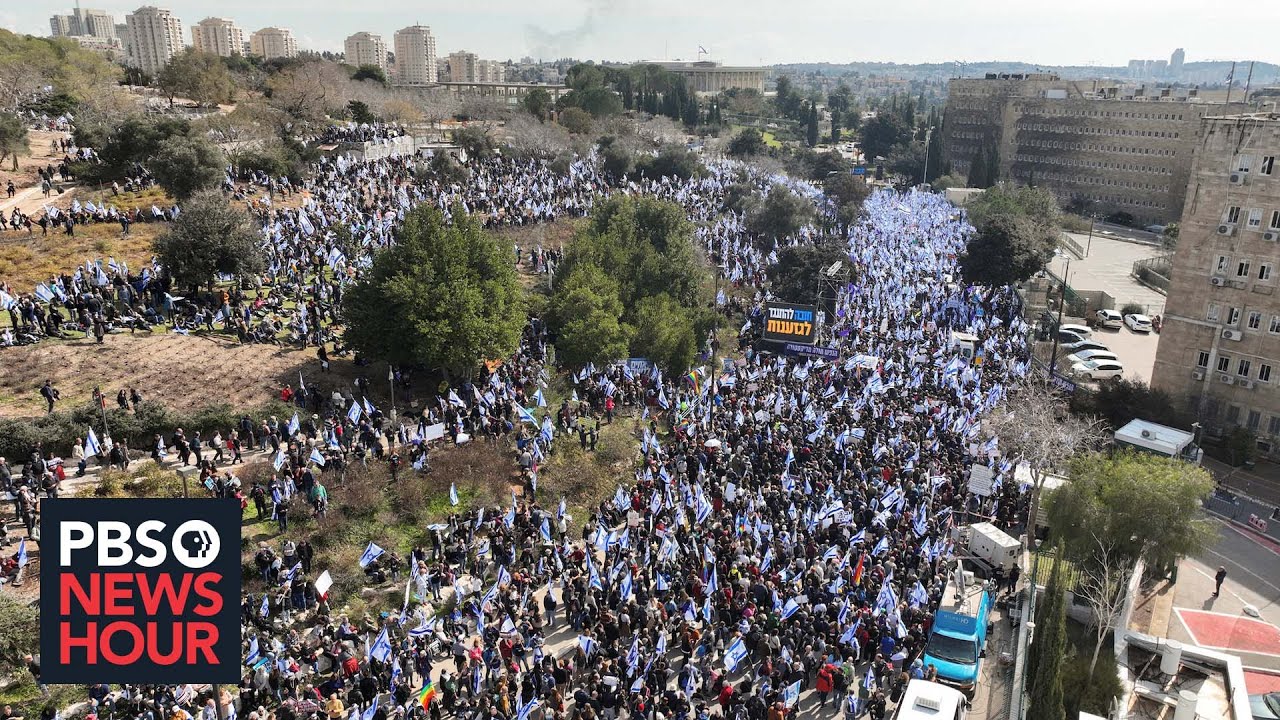Israel Philharmonic: We are worried about the future of our country
NewsFrom our special correspondent in Tel Aviv, Dan Yakir, Chief Legal Counsel of the Association for Civil Rights in Israel (ACRI):
During the past 13 weeks massive nationwide demonstrations of about 250,000 protesters flood the streets of Israel every Saturday evening to protest against the legal revolution advanced by the Netanyahu government. The central demonstration takes place in Tel Aviv in streets very close to the important cultural institutions of Israel: on the one side Habima National Theatre and the Charles Bronfman Auditorium (home of the Israel Philharmonic) at Culture square and on the other side the Cameri Theatre of Tel Aviv and the Israel Opera at the Center for the Performing Arts. Saturday evening is the most busy evening for cultural events and the demonstrations pose a dilemma: part of the audience prefer to demonstrate instead of attending the performances; those who want to attend find it difficult because many of the streets leading to the halls are blocked. On top of that all those institutions are heavily funded by the Ministry of Culture and they ask themselves if and how to address the issue.
The Cameri Theatre decided to stay dark on Saturday. On Friday The Israel Opera held the first performance of the revival of Don Giovanni (a coproduction with the Royal Opera House Covent Garden). Before the performance started an ad was screened advertising the next production: Theodor, a world premier of an Israeli opera by Yonatan Cnaan about Theodor Herzl, the founding father of the Zionist movement and of the vision of establishing the State of Israel. As if connected they went on to screen the Declaration of Independence highlighting one paragraph:
“THE STATE OF ISRAEL will be open for Jewish immigration and for the Ingathering of the Exiles; it will foster the development of the country for the benefit of all its inhabitants; it will be based on freedom, justice and peace as envisaged by the prophets of Israel; it will ensure complete equality of social and political rights to all its inhabitants irrespective of religion, race or sex; it will guarantee freedom of religion, conscience, language, education and culture; it will safeguard the Holy Places of all religions; and it will be faithful to the principles of the Charter of the United Nations.”
The reference to current day issues did not escape the audience who responded with loud applause.
Before starting the subscription concert of the Israel Philharmonic on Saturday evening Lahav Shani, the music director, asked the orchestra to rise and addressed the audience: “We know you came to hear music and we will shortly play the program as planned but we can’t ignore the voices from outside. We are worried about the future of our country. Israeli democracy is a miracle. So is our cultural life and we can’t lose what was built here. We are worried but I hope that a solution and unity will be found shortly.” Then unexpectedly the huge orchestra that was assembled for Prokofiev’s Scythian Suite played the national anthem “Hatikva” (hope). All the audience stood up and sang a long and at the end gave the orchestra a standing ovation. There were very few voices of protest.
The soloist of the concert was the Spanish pianist Juan Pérez Floristán (winnner of the 2021 Arthur Rubinstein Piano Master Competition in Tel Aviv). After a virtuosic performance of Rachmaninov’s Rhapsody on a Theme of Paganini he played as an encore the cantabile from Musica Ricercata by György Ligeti. Nodding to the demonstration outside he expressed the hope that it will bring some peace and harmony.






Comments